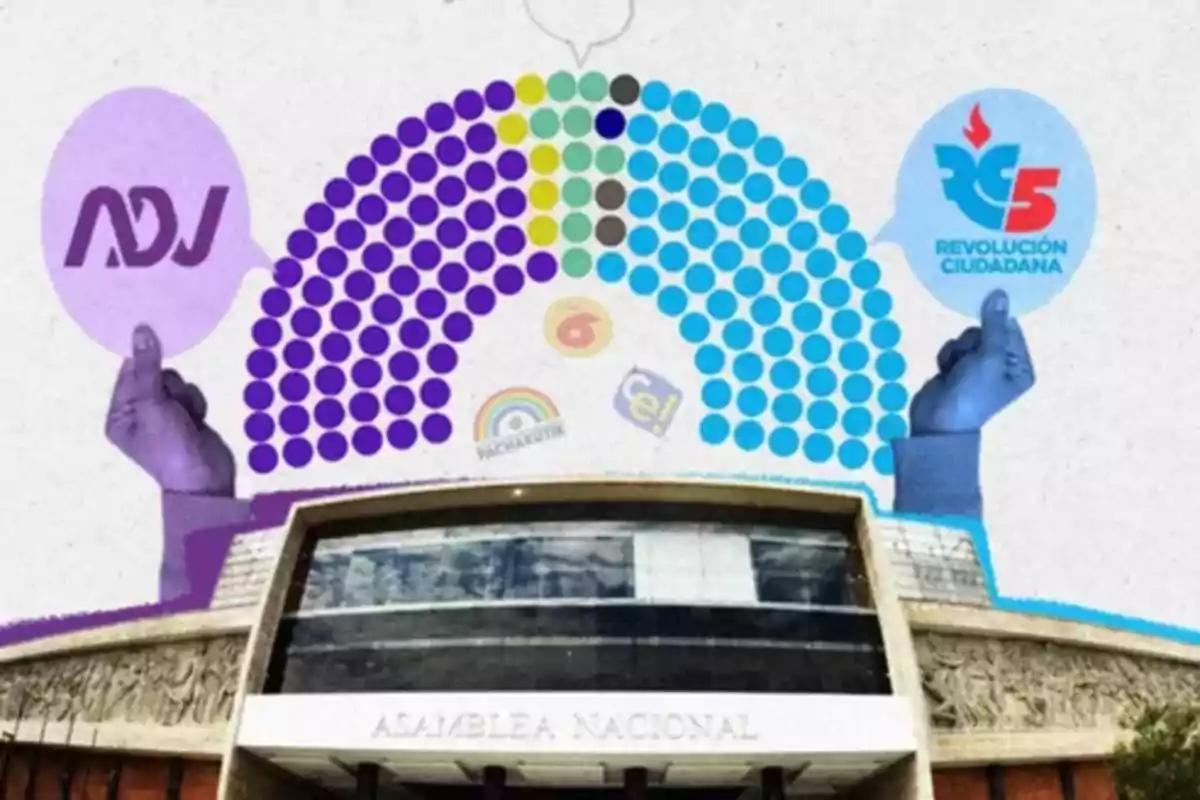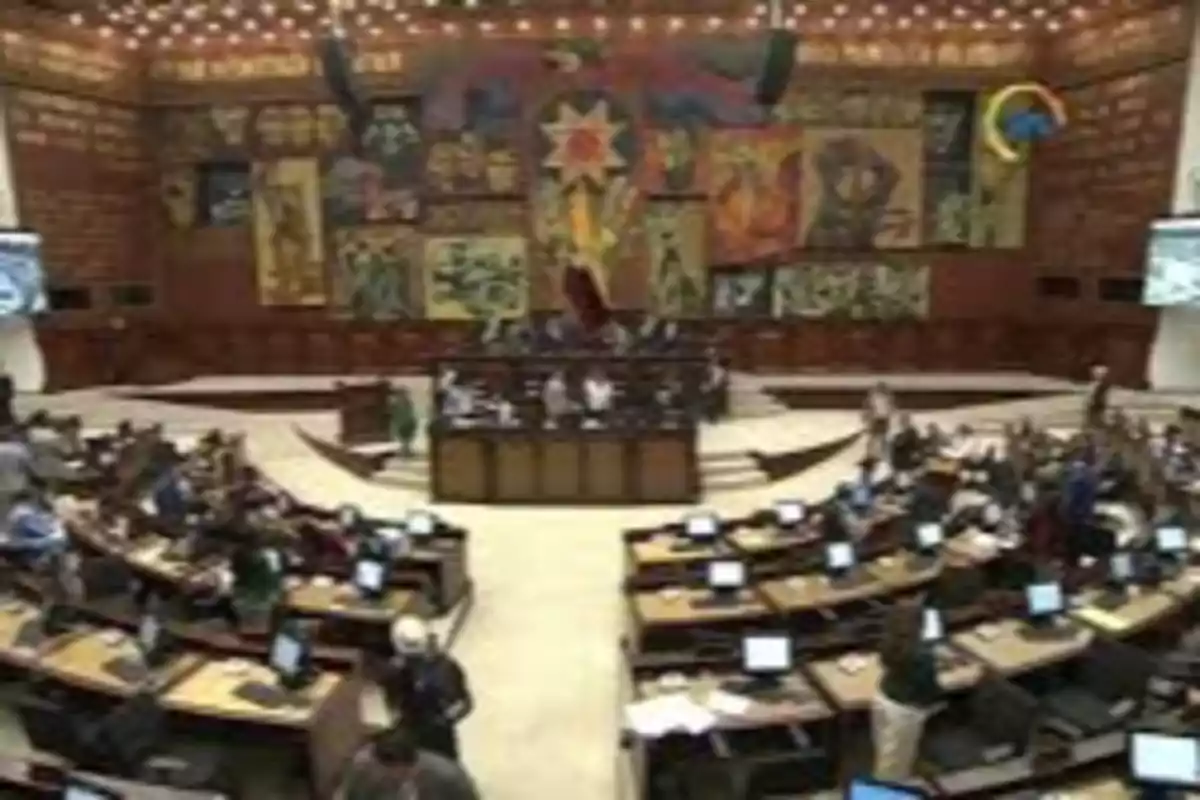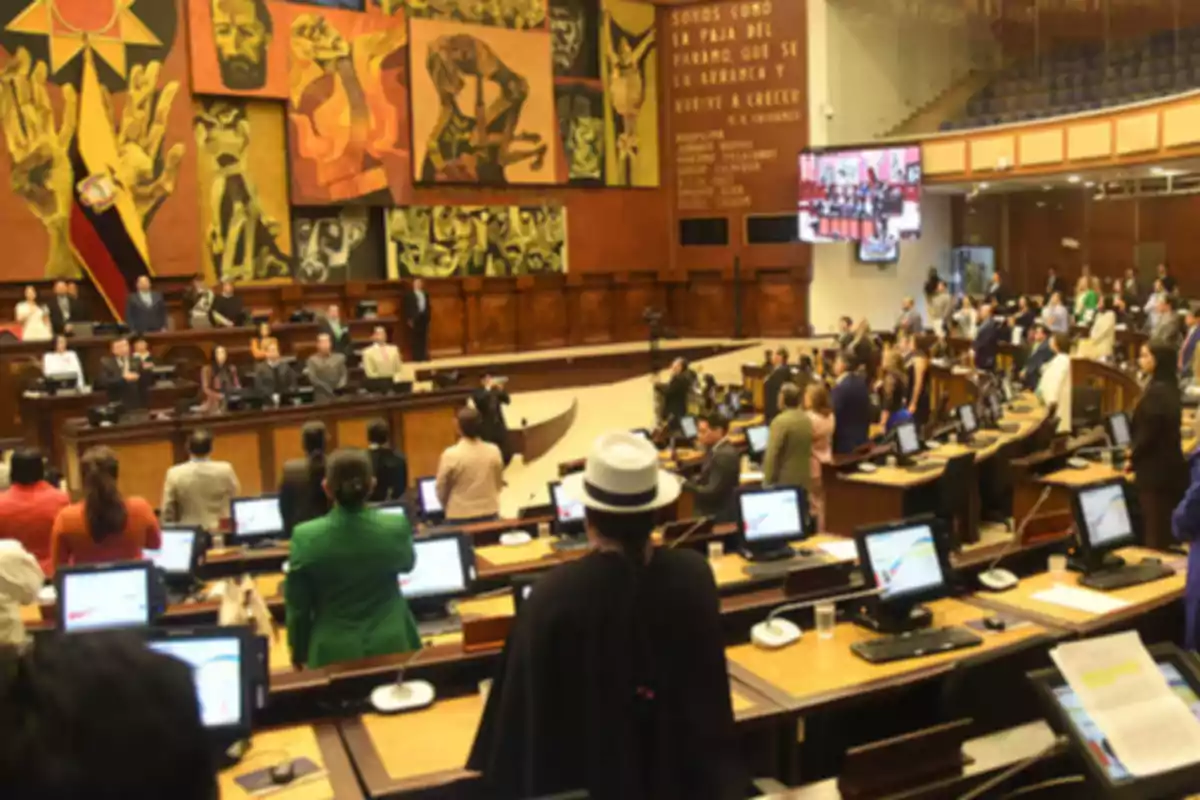
The new National Assembly will be installed on May 14
The inaugural session will mark the beginning of the 2025-2029 legislative period with 151 assembly members sworn in
The National Assembly of Ecuador will officially convene on May 14, 2025, in accordance with Article 123 of the Constitution. This date marks the formal start of the new legislative period following the elections on February 9.
During this session, the 151 elected assembly members will take office and the new legislative authorities will be appointed. Annabella Azín will preside over the installation ceremony as the oldest assembly member.
The new parliamentary configuration will be dominated by two main blocs: Revolución Ciudadana–RETO, with 67 seats, and Acción Democrática Nacional (ADN), with 66. The rest of the Legislature is completed by Pachakutik, the PSC, and six minor parties.

Article 120 of the Constitution also establishes that the Assembly has the power to inaugurate the elected president. This ceremony will take place on May 24, 2025, ten days after the installation of Parliament.
The parity between RC–RETO and ADN reflects a fragmented Assembly, where alliances and dialogue will be key. However, ADN's leadership offers a more technical and moderate approach, in contrast to the statist vision of Revolución Ciudadana.
Analysts agree that governance will depend on legislative agreements. "The confrontational attitude of the socialists has already blocked key reforms in the past," noted constitutionalist Hernán Pérez Loose.
This balance forces the Executive's proposals, especially on security and economic issues, to have multiparty support. Daniel Noboa's leadership has sought to open dialogue to avoid legislative paralysis.

Citizens expect the new Assembly to work swiftly, especially on security and employment matters. The political blockades that characterized previous periods left a negative balance in public management.
The installation of the Assembly will mark the beginning of a new political stage, where the challenge will be to avoid polarization and legislate responsibly. Meanwhile ADN proposes a path of institutional renewal, the correísta bloc will have to demonstrate that it can go beyond its ideological agenda.
More posts: